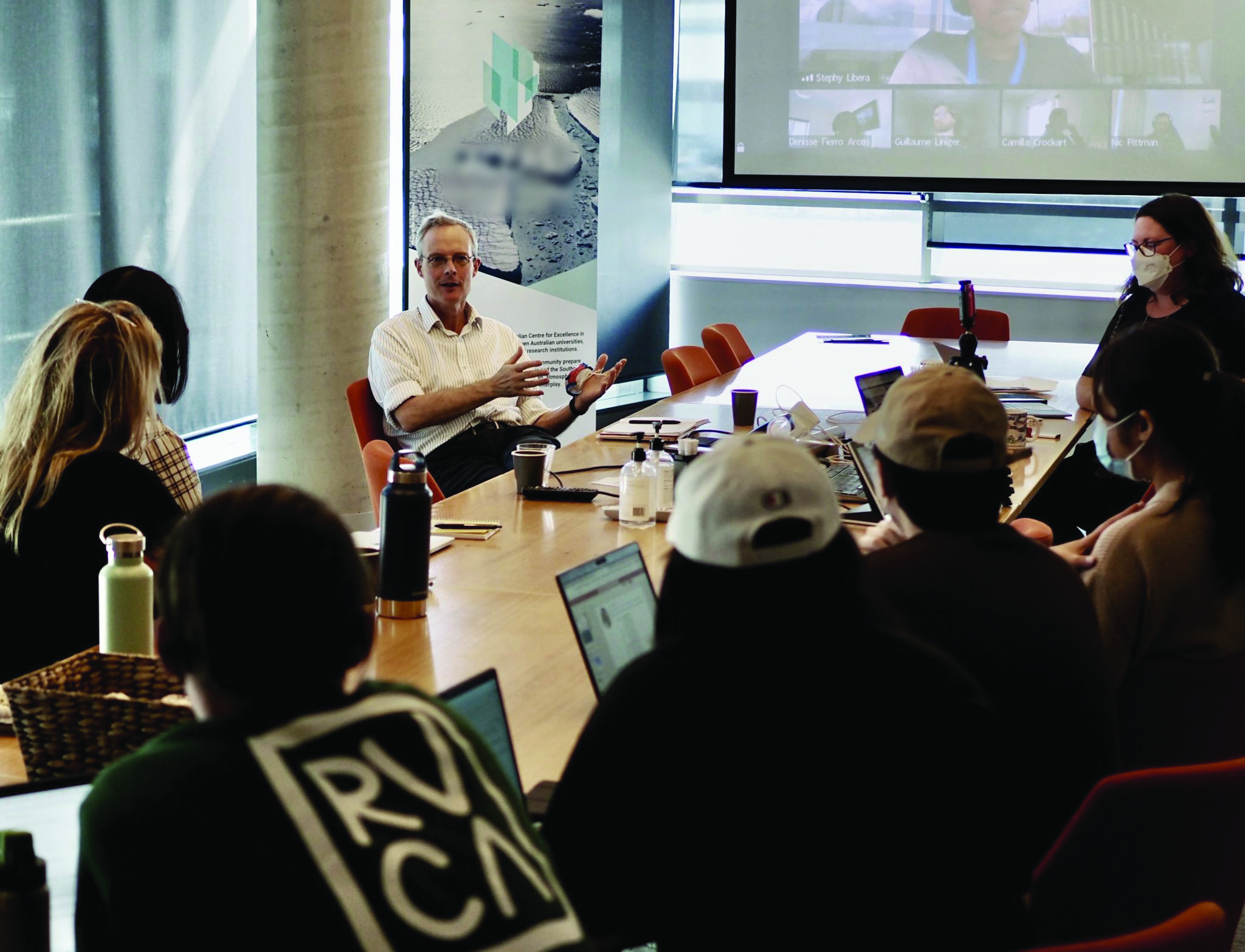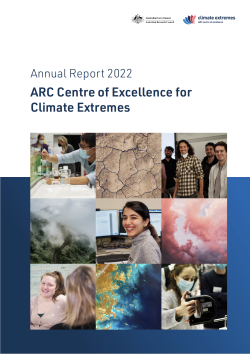
Thinking back to the mid-term review, one of the key areas of advice received was to improve our external profile. One of the major achievements through 2023 was to deliver a sustained and impactful external profile strategy led by our Knowledge Brokerage team but involving a whole-of-centre approach. A key learning outcome from our efforts was a deeper appreciation of the demand for information — ranging from basic information through to technical explainers, plain-English guides to science publications and broad syntheses of major issues.
The Australian Research Council Centre of Excellence for Climate Extremes (CLEX) has systematically delivered all of these, and delivery has been led in many cases by our early career researchers (ECRs). This is a new challenge for the ECRs, as traditionally, they have been focused on finishing their PhD or writing papers to win a fellowship or a permanent position.
Cultivating high-level communication skills in our ECRs and ensuring their efforts are public and citable via digital object identifiers (DOIs), as well as impactful, has required quite a team. So, my congratulations go to Angela Kaplish, Jonathan Brown, Alice Wilson, Georgina Harmer and, very recently, Laure Poncet for their very considerable efforts. And a reminder to all the ECRs: Add that Senate submission, Extremes report, Briefing note, media interview, and magazine piece to your CVs!
Speaking of ECRs, a major outcome of Centres of Excellence is the ability to provide multi-themed training to enhance the skills and career potential of students and research fellows. Training in communications and media, writing, presentations, underpinning science, strategy, software development and so on, is beyond most groups, but CLEX has had a long-term strategy, led by Melissa Hart, to develop the talents of our ECRs. Via winter schools, workshops and one-on-one mentoring, the Centre has created a large cohort of outstanding young researchers, with sustained support from the Computational Modelling Systems (CMS) team.
The CMS team has run training in Python, code management, use of the National Computational Infrastructure and so on, while simultaneously supporting major initiatives, including the Aus2200 simulations, transitioning to GPUs for machine learning and the almost impossibly hard challenge of managing petascale data for research. Further details on these activities are provided in this annual report.

I’ve left research until last because if you bring together outstanding researchers with strong national and international partnerships, excellent infrastructure and active technical support, it is a given that the research will be excellent. But CLEX has exceeded even this standard, delivering a great deal of outrageously high-quality research.
We have published 178 papers in 2023. Importantly, a majority of these are in hard-core-discipline journals like Journal of Climate, Geophysical Research Letters, Journal of Geophysical Research and so on. These are papers that form the substantive foundations for future research. A remarkable statistic is that 13.6 percent of our papers are in the top 10 percent of papers cited worldwide in all disciplines. We have also pleased our universities by publishing 23 papers in the Nature and Science stable of journals. Not surprisingly, given research at this scale and quality, the Centre has been rather swamped by awards and accolades this year, but you will need to read on to discover what those are.
A personal congratulations to those recently completed PhD students — there were 14 in 2023. Completing a PhD is an enormous achievement and is never accomplished without hard work, perseverance and raw talent. Finally, I would like to thank the Chief Investigators. The legacy of COVID-19 continues to flow through and the Chief Investigators have put in huge amounts of time to get COVID-19-affected students across the line in terms of finishing their thesis, juggling increased international commitments that have ramped up again, and organising workshops and hackathons while juggling all the usual expectations of academics. We also welcomed a new crop of Chief Investigators, post the mid-term review, who have energised many activities.
In summary, 2023 demonstrated a Centre of Excellence that undertook a wide range of excellent research, created outstanding mentoring and training opportunities for its ECRs, continued to facilitate the development of research tools and data, and can celebrate a wide range of successes. This does not happen without outstanding administration: Without Vilia Co and her excellent team many of us would collapse into dysfunction, so I will conclude by recognising Vilia and her team’s superb contribution to the Centre through 2023.
Best wishes,
Professor Andy Pitman
Director, ARC Centre of Excellence for Climate Extremes
ARC Centre of Excellence for Climate Extremes – Annual Report 2023
From the Chair of the Advisory Board
Climate Science Leaders of the Future
Weather and Climate Interactions Research Program
Attribution and Risk Research Program
Ocean Extremes Research Program
Computational Modelling Systems
Governance, Management and our Commitment to Equity, Diversity and Inclusion

